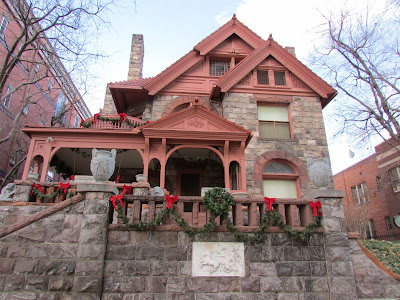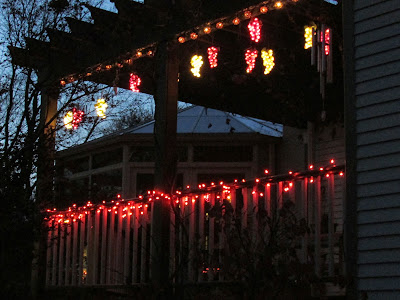The Reichstag Building
Technically in West Berlin, but near the Wall
A few years ago, one of my uncles got the whole family together via email and said, "Why don't we practice our creative writing and all compose something using the word
audacious. Write about a time it felt pretty good to go a little crazy! Why did it feel so good?"
Early on in my blog, I shared what
my younger sister Di wrote about her childhood trip to the Pacific Ocean in 1964. And today, in honor of the birthday of
my older sister Peg, I thought I'd post her narrative of traveling in Germany in 1984, back before
the Wall came down:
It was the winter of 1984 and we were living in Heidelberg, Germany. I was a stay-at-home mom and living on base so while we were in Germany, we actually lived kind of in a little U.S. because everyone spoke English and we all had the same customs. However, I did happen to have a friend who was the total opposite of me. Jeanne Labrecque was an elementary school teacher and she was always doing something crazy. So on Thursday before a long weekend, Jeanne suggested we take a trip to East Berlin which at the time was still Soviet controlled.
Since I was the stay-at-home mom, I spent all day Friday making the preparations, which included getting our border crossing orders, making arrangements to spend one night with a close acquaintance (she wasn’t even really a friend) who lived in West Berlin with her military husband, and getting our brand-new Volvo ready for the trip. On Friday evening, Jeanne, another friend (can't remember her name right now) and I took off from our house for the long drive to West Berlin.
Now, to get to West Berlin, you had to travel through East Germany which meant checkpoints along the way, and it was snowing. At each checkpoint, we would go through first a West German checkpoint, where we all got out and our papers had to be checked to make sure everything was in order (sounds like a bad spy movie, huh?). There were also strict instructions of what we could and could not do along the way. We were not allowed to divert from the main road, we had a set time limit to get from one checkpoint to the next and we could not arrive too late or too early, we were not to stop for anyone except at the checkpoints, and we were to salute the Soviet officers. So off we go and a little distance away we come to the first Soviet checkpoint.
We stopped and the Soviet soldier/conscript took our papers, examined them very thoroughly, and then instructed us that one of us had to go into a little nondescript building with all of our papers. Our friend said she would go and so off she went. She was in the building for what seemed a very long time before she came out. We saluted the Soviet officer and were on our way once again. When we asked our friend what happened, she told us that she went into the building and there was a wall with a little slot where she was instructed (verbally only since no one else was in the room with her) to put our papers through the slot. She did this and waited . . . and waited . . . and waited before the papers were shoved back through the slot and she was told that she could leave.
I drove on very deliberately to make sure I didn’t go too fast or too slow. It was pitch dark and snowing the whole way. It was eerie because usually when you drive down a highway you see lights from nearby towns and homes but there were no such lights anywhere along the drive or lights on the highway itself. Finally, we reached the next checkpoint, which was again the Soviet checkpoint (we haven’t even gotten to the famous "Checkpoint Charlie" yet; and I’ll tell that story another time or you’ll be reading this for hours).
Once again, there was the Soviet soldier/conscript standing stoically in the snow in his big, heavy wool coat and the big fur hat. We did the same thing as the last Soviet checkpoint. Our friend got out, went into a nondescript building and waited, and waited, and waited for our papers to be shoved back through the slot before coming out and saluting the soldier and then driving off.
***************
Billboard at the border,
featuring a young Soviet Soldier
and the message (to the right in the above photo):
****************
I have to mention one very disturbing point from both checkpoints. At both checkpoints the Soviet soldier/conscript was extremely young (probably about 17 years old) and yet, he spoke perfect American English. If I had met him on the street in Caney, Kansas, in regular street clothes, I would have never known he spoke anything but American English. I stress American English as opposed to the Queen’s English.
But back to the road trip. We drove a little way further, finally arriving at the American checkpoint, where we all went inside were given a mini-debriefing of how the drive went: did we see anything worth reporting, did we speak to anyone, did we divert from the main road, etc. And there I was -- the little stay-at-home mom from Caney, Kansas, who always dreamed of seeing the world -- in West Berlin. What a magnificent city. But as we drove around (we got a little lost but didn’t really mind) we could see the wall that surrounded the city, and I realized that I was most definitely not in Kansas anymore.
Someday I’ll write about the rest of this adventure because it was definitely one of the most exciting adventures I’ve ever had . . . so far!
by guest blogger, Peggy Carriker Rosenbluth
Thanks Peg . . .
and Happy Birthday!
My trip nineteen years later was not as harrowing as Peg's!
Here I am in 2003 at the Checkpoint Charlie Internet Cafe,
just inside the former Soviet Sector in East Berlin,
where the billboard features an American Soldier
and the sign -- now an artifact rather than an injunction -- says:
As you can see on the second sign
(immediately behind the first, to the right) it is now a museum,
where all are welcome to visit without showing passports,
travel documents, or crossing orders.























.jpg)












